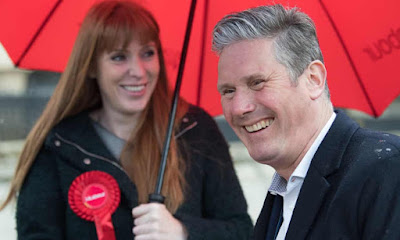The left, like the poor, will always be with us. As will the right. And both wings, like poverty, are crying out for intelligent management.
The successful Labour leader finds the tenacity – because it’s damned hard work – to control both wings. One who can do that will channel a lot of energy into useful directions. One who can’t will see the party implode yet again.
Clement Attlee, Labour’s best leader, perhaps Britain’s best Prime Minister, found the magic formula to hold Labour together, in spite of the heavy hitters in each wing, such as the two with soundalike names: Ernie Bevin on the right, Nai Bevan on the left. It’s said that Bevin, told that Bevan was his own worst enemy, replied: “not while I’m alive he ain’t”.
For the best part of six years, Attlee held the battling wings together, and apart. In fact, it was Nai Bevan, his energies channelled by the PM into constructive channels, who oversaw Attlee’s greatest achievement, launching the National Health Service.
In his last major public speech as Prime Minister, at the Labour Party conference in October 1951, with a general election looming, Attlee outlined his vision:
We want a Society of free men and women, free from poverty, free from fear, able to develop in full their faculties in co-operation with their fellows, everyone giving and having the opportunity to give service to the community… a society bound together by rights and obligations, rights bringing obligations, obligations fulfilled bringing rights; a society free from gross inequalities and yet not regimented nor uniform…
How that resonates today, in a Britain – and above all an England – more divided than ever, with greater inequalities, and a spirit of service still strong only in areas like the health service, applauded but neglected and underpaid.
Just as topical is Attlee’s denunciation of the other side:
Our opponents, on the other hand, regard the economic process primarily as giving an opportunity to the individual to advance his own interests… Their motto is: ‘The world is my oyster; each one for himself.’ The result of that policy can be seen by all. There was the army of the poor; there were the slums; there was beautiful Britain defiled for gain; there were derelict areas.
‘The world is my oyster; each one for himself’. It’s the central tenet of a Prime Minister whose concern is his own career rather than anyone else’s, who even believes his indoor furnishings should be paid for by someone else. Sadly, the attitude is shared by far too many voters, who seeing him with his nose in the trough, only think “is there space for me there too?”
It’s sad that they imagine he will ever let them in.
Things had come to a head in Attlee’s government, in April 1951, a few months before his speech. Hugh Gaitskell, as Chancellor of the Exchequer, had demanded that, to keep NHS spending within budget, charges would have to be introduced for dentistry and prescriptions. The saving was less than 6% of the total. In Bevan’s view, it was too small a gain for such a major breach of the principle of free care.
He resigned.
Out of government, he engaged in a series of attacks on his former colleagues which showed his differences went far wider and far deeper than prescription charges alone. Attlee wrote to his brother Tom, “the real miracle is that we kept him straight for so long.”
 |
| Bevan (left) did well while controlled by Attlee (right) |
And it was both wings that were at fault. Gaitskell, who proposed the prescription charges, was on the right of the party. He was talking about £23m out of £400m. It’s hard not to feel he was deliberately provoking the Bevanites. Bevan had risen to the bait, and with the master no longer in control, the two wings were at war again.
Labour won the popular vote in the 1951 election, but the Tories won a healthy majority in Parliament. Attlee’s government was over. The Tories were at the start of 13 years in power.
Why is this so relevant today?
Keir Starmer has yet to form a government. But he resembles Attlee at the end of his. He keeps being sniped at from the left and pushed around by the right.
Labour did badly in elections on 6 May. Starmer came up with a response that was swift, decisive and completely wrong. He fired Angela Rayner as chairman of the party and campaign coordinator.
Rayner’s roots are to the left. She has, though, shown impeccable loyalty to Starmer, in a way Bevan never did to Attlee. She’s from a working-class background in the North of England, at a time when we badly need to reconnect with working class voters, especially in the North. She’s also an outstanding communicator, when Starmer seems to think that what matters is to outperform Boris Johnson at Prime Minister’s Questions, forgetting that hardly anyone cares and even fewer watch.
There’s also a suspicion that if he made her his scapegoat, it was to protect his own people, since Rayner never had real authority over the campaign, which was run from Starmer’s office.
 |
| Rayner (left) could have been a more loyal Bevan to a new Attlee played by Starmer (right) until he sacked her |
Labour has had three hopeless leaders in a row. Starmer’s better than the last one, Corbyn, but that’s a low bar to clear. But is he just the fourth in a poor run?
We need an Attlee. I’m not sure we’ve found one.
The quotations are form Citizen Clem, John Bew’s biography of Clement Attlee
No comments:
Post a Comment